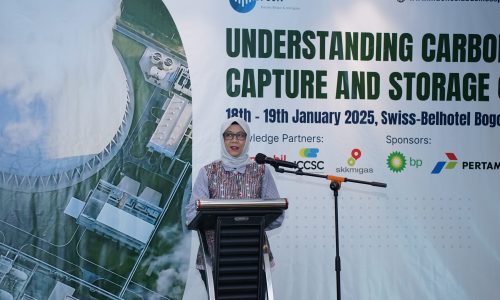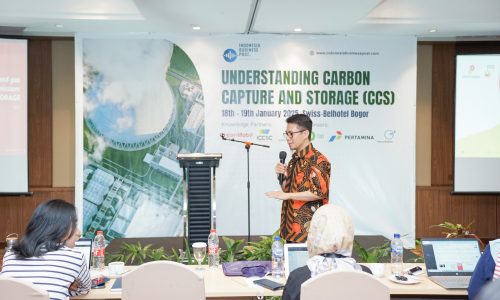The Indonesia Stock Exchange (BEI) has reported an impressive start to carbon trading, with transaction values reaching IDR 29.2 billion on the first trading day, September 26, 2023.
Jeffrey Hendrik, Director of Development at BEI, reported that the total volume traded at the end of the day amounted to 459.95 tCO2. There were a total of 27 transactions with 15 buyers and one seller participating in the market.
Breaking down the transactions, there were 17 trades in the regular market, three in the negotiation market, and two in the auction market.
“Today, we had a total of 16 service users,” Jeffrey stated.
The opening price in the regular market was set at IDR 69,600, with the closing price at IDR 77,000.
Previously, the Financial Services Authority (OJK) had set a target for 99 coal-based steam power plants (PLTU) from 42 companies with a total installed capacity of 33,569 MW to participate in carbon trading.
Mahendra Siregar, Chairman of the OJK Board of Commissioners, noted that these 99 PLTU plants represent approximately 86% of coal-based steam power plants operating in Indonesia.
“Our hope is for these PLTU plants to commence carbon trading through the carbon exchange this year,” Mahendra stated.
In addition to the PLTU subsector, carbon trading in Indonesia is expected to expand to various other sectors, including forestry, oil and gas, general industry, and the maritime sector.
Government prepares carbon tax regulations to anticipate EU carbon border adjustment mechanism (CBAM)
The government is in the process of refining carbon tax regulations, even after launching carbon trading. These tax regulations are being developed to anticipate the Carbon Border Adjustment Mechanism (CBAM) that the European Union (EU) plans to implement starting in 2026.
“The regulations will be completed, partly because Europe will implement CBAM in 2026. In 2024, they will be in the socialization phase, which means our industry must be ready to become a green energy base and a clean industry—and that requires investment,” said Airlangga Hartarto, the Coordinating Minister for Economic Affairs, on September 26, 2023.
He explained that the imposition of carbon taxes would be a step toward reducing carbon emissions. In addition to carbon taxes, the government has officially launched the Indonesian Carbon Exchange to accelerate the fulfillment of greenhouse gas emissions reduction commitments (Nationally Determined Contributions/NDC). The government has set an NDC target of 31.89% with its own capabilities or 43.20% with international assistance.
“Carbon taxes come in two forms: voluntary and mandatory. The voluntary one was just launched by the President through the carbon exchange, while carbon taxes are only complementary. If it is not traded on the exchange, it will be addressed through carbon taxes,” said Airlangga.
He urged companies in industries that produce carbon emissions to contribute to emission reduction efforts in Indonesia, both through the exchange and carbon taxes. “If their products are exported, they will be subject to carbon taxes in other countries. It’s better to have them imposed domestically,” Airlangga added.
Carbon tax regulations are stipulated in the Harmonization of Tax Laws (UU HPP), not as a tax on each carbon emission emitted by businesses. Businesses have two options if their emissions exceed the standards set in their sector: they can either pay carbon taxes to the state or find a carbon converter in the carbon market.
Indonesia has the potential to lead the carbon market, estimated to absorb 25 billion tons of carbon with its vast tropical forest resources covering 125 million hectares, making it the third-largest in the world.









